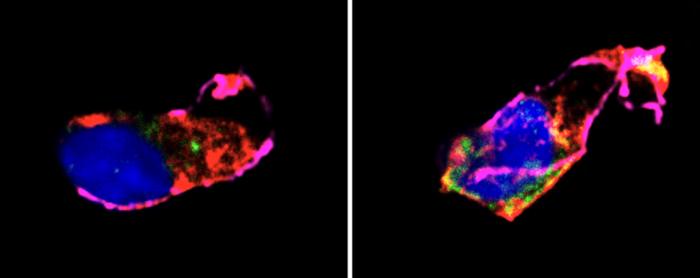NEW YORK, NY–Does this sound like you? You wake up at the same time each morning, get the kids out the door, and rush to catch the subway to work. But at night, maybe you stay up until midnight doing laundry or 1 a.m. to catch up on the bills.

Credit: Columbia University Irving Medical Center
NEW YORK, NY–Does this sound like you? You wake up at the same time each morning, get the kids out the door, and rush to catch the subway to work. But at night, maybe you stay up until midnight doing laundry or 1 a.m. to catch up on the bills.
Lots of Americans—about one-third of us—are in the same situation and habitually get only five to six hours of sleep instead of the recommended seven to eight hours.
But even a mild chronic sleep deficit may heighten the risk of developing heart disease later in life: Surveys of thousands of people have found that people who report mild but chronic sleep deficits have more heart disease later in life than people who get adequate sleep.
A new Columbia study of women now shows what’s happening in the body during chronic mild sleep deprivation.
After just six weeks of shortened sleep, the study found, the cells that line our blood vessels are flooded by damaging oxidants. And unlike well-rested cells, sleep-restricted cells fail to activate antioxidant responses to clear the destructive molecules.
The result: cells that are inflamed and dysfunctional, an early step in the development of cardiovascular disease.
“This is some of the first direct evidence to show that mild chronic sleep deficits cause heart disease,” says study leader Sanja Jelic, MD, director of the Center for Sleep Medicine at Columbia and professor of medicine in the Division of Pulmonary, Allergy, and Critical Care Medicine at Columbia University Vagelos College of Physicians and Surgeons.
“Until now we’ve only seen associations between sleep and heart health in epidemiological studies, but these studies could be tainted by many confounders that cannot be identified and adjusted for. Only randomized controlled studies can determine if this connection is real and what changes in the body caused by short sleep could increase heart disease.”
Previous studies did not examine chronic sleep deficits
Studies of human sleep have examined the physiological effects of a few nights of profound sleep deprivation.
“But that’s not how people behave night after night. Most people get up around the same time each day but tend to push back their bedtime one to two hours,” Jelic says. “We wanted to mimic that behavior, which is the most common sleep pattern we see in adults.”
The researchers screened nearly 1,000 women in Washington Heights for the study, enrolling 35 healthy women who normally sleep seven to eight hours each night who could complete the 12-week study.
For six weeks the women slept according to their usual routine; for the other six weeks they went to bed 1.5 hours later than usual. Each participant’s sleep was verified with wrist-worn sleep trackers.
Bottom line: Just go to sleep
“Many problems could be solved if people sleep at least seven to eight hours per night,” Jelic says.
“People who are young and healthy need to know that if they keep getting less sleep than that, they’re aggravating their cardiovascular risk.”
Next steps
Recent epidemiological studies suggest that inconsistent bedtimes may raise the risk of heart disease. Jelic’s team is designing a study to see if bedtime variability impacts vascular cells in the same way as chronic, but regular, short sleep.
Journal
Scientific Reports
DOI
10.1038/s41598-023-42758-y
Subject of Research
People
Article Title
Mild sleep restriction increases endothelial oxidative stress in female persons
Article Publication Date
16-Sep-2023
COI Statement
No conflicts




